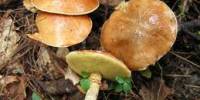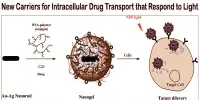Researchers at Case Western Reserve University have published the findings of a new study that will help us better understand Crohn’s disease and the factors that induce intestinal inflammation.
Fungi are increasingly becoming recognized as key components of the gut microbiome. Fungi living in the human intestine elicit the induction of T helper 17 cells, which are essential orchestrators of protective immune responses, for example.
Fungal components of the intestinal microbiota have also been found to alter the mammalian host’s immune responses by suppressing or boosting local inflammatory responses.
Crohn’s disease is an inflammatory bowel disease (IBD) that causes chronic inflammation throughout the digestive tract. Diarrhea, discomfort and cramping, weariness, weight loss, and other symptoms can occur. Crohn’s disease has no cure, although modern therapeutic options can help patients manage their symptoms.
Crohn’s disease usually strikes young people in their late teens, early twenties, or early thirties. This illness, however, can strike at any age. It affects both men and women equally. Young children can potentially get Crohn’s disease.
Because of research tying a common fungal pathogen to inflammatory bowel illness, new therapeutic options for Crohn’s disease sufferers may be on the horizon. The research was published in the journal Cellular and Molecular Gastroenterology and Hepatology recently.
Our findings provide a scientific rationale for eliminating C. tropicalis fungal infection of the gut. The next step in our research is to study other fungal organisms within the gut and then antifungal therapies in patients with this devastating condition. Remission is very difficult to obtain in Crohn’s disease patients.
Fabio Cominelli
The involvement of the fungus Candida tropicalis (C. tropicalis) in initiating chronic inflammation within the gut microbiota is the subject of new research from Case Western Reserve University School of Medicine. The gut microbiome is a complex ecosystem of bacteria and fungi that lives in the digestive tract.
The discovery that commensal fungi can elicit critical physiological processes such as the activation of T helper 17 cells, which are central orchestrators of protective immune responses, is rekindling interest in commensal fungal research.
The fungus was injected into animal models, and a chemical substance was used to cause colitis (inflammation of only the large intestine). With changes in bacteria numbers, the models infected with C. tropicalis displayed severe inflammation and a major imbalance in the gut microbiota.
The findings demonstrate that an imbalance of fungi and bacteria can lead to a propensity to inflammatory bowel disease, according to the researchers. People with Crohn’s disease had higher amounts of C. tropicalis than healthy people, according to previous research.
Understanding the effects of C. tropicalis on a person’s health will aid in the development of Crohn’s disease treatments.
“Our findings provide a scientific rationale for eliminating C. tropicalis fungal infection of the gut,” said Fabio Cominelli, professor of medicine and pathology and associate dean for program development at the Case Western Reserve School of Medicine.
“The next step in our research is to study other fungal organisms within the gut and then antifungal therapies in patients with this devastating condition. Remission is very difficult to obtain in Crohn’s disease patients.”
















